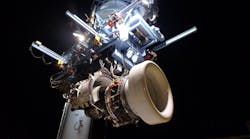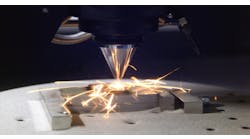Pratt & Whitney has resolved the error in its PW1000G GTF engines that caused four engines installed in Airbus A320neo aircraft to experience unplanned shutdowns in late January and early February. Those incidents caused the European Aviation Safety Agency to issue an emergency airworthiness directive regarding the engines.
EASA announced it had examples of "several occurrences of engine in-flight shutdown" and other in-service incidents with the PW1100G engines.
In addition, Airbus SE halted all deliveries of the A320neo narrow-body jets featuring the PW1100G geared-turbofan engine.
Speaking to an investors conference, chairman/CEO Greg Hayes of United Technologies, P&W’s parent company, explained that the engine builder had returned to installing a previous version of a knife-edge seal attached to thePW1000G’s high-pressure compressor aft hub. With that fix, Pratt & Whitney resumed PW1000G production in mid-February.
A newer design for the seal had been introduced into new-production GTF engines in December. It was among more than a dozen engineering changes to the PW1000G engines, but according to Hayes the revised seal “did not play out as expected,” according to published sources.
An official statement by Pratt & Whitney explained that “the solution is based on a design with which the company has significant experience.”
The A320neo is a revised version of the A319, A320, and A321 twin-engine aircraft with a “new engine option” (either the CFM International LEAP-1A or the Pratt & Whitney PW1100G), and large wing tips that help to reduce the jets’ fuel consumption.
Airbus selected the PW1100 as the launch engine for the A320neo (new engine option) aircraft family, based on its fuel efficiency, noise reduction, and lower CO2 and NOX emissions.








